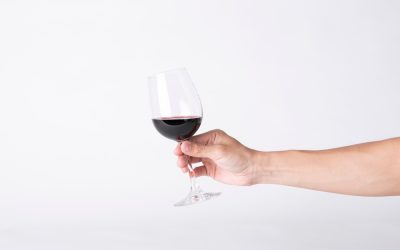If you’re worried about your mental health, our direct access service aims to provide you with the advice, support and treatment you need as quickly as possible. You’ll be able to get mental health advice and support usually without the need for a GP referral. Drinking alcohol can make you feel good for a short while because it raises your levels of a feel-good hormone called serotonin. However, when the effects of alcohol start to wear off, your serotonin levels decrease.

Relaxation training also is recommended because it “can help clients reduce their anxiety and tension when facing stressful situations and minimize their typical levels of motor and psychological tension” (Parks et al. 2004, p. 78). For clients with both alcohol use and anxiety disorders, however, a potential limitation of RPT is that avoidance of anxiety-inducing situations can preclude any potential anxiety reduction via exposure therapy, which in contrast requires clients to directly confront such situations. In short, for comorbid individuals, the avoidance and escape-oriented coping strategies taught within RPT could perpetuate anxiety problems. This can be achieved, for example, by using abstinence-focused social support during in vivo exposure to situations eliciting anxiety or by conducting in vivo exposure only in environments without access to alcohol. A structured plan using imaginal and/or graded exposure to cues that elicit anxiety also may offer a practical balance of therapeutic risk and reward.
Symptoms
However, a prospective followup of 204 Danish COA’s and control subjects by Knop and colleagues1 demonstrated no differences between the 2 groups by age 20 with respect to either depressive or anxiety disorders. A subsequent followup of the Danish population revealed higher levels of anxiety disorders but not depressive episodes for the offspring of alcoholic parents, although by that age some of the symptomatology might already have resulted from high levels of alcohol or other drug (AOD) intake. Although these studies raise important questions, researchers cannot draw definitive conclusions about the association between alcoholism and psychiatric disorders for a number of reasons.

People may also benefit from counseling, which can take the form of cognitive behavioral therapy (CBT) or interpersonal therapy, among others. Alcohol is a natural disinhibitor — meaning it can cause you to make choices you may not make while sober. This is why some people can wake up feeling embarrassed about things they said or did. This can definitely cause anxiety and worsen any existing phobias or overthinking tendencies you may already have.
The Evolving Evidence on the Health Implications of Alcohol
Alcohol is a mild anesthesia and will put you in the mood for sleep — at least initially. Later in the sleep stages, alcohol disrupts REM sleep and paralytic sleep, which is when your body rejuvenates itself. Even if you’re consuming a standard amount of alcohol — a 12-ounce beer or a 5-ounce glass of wine — you’ll experience does alcohol cause panic attacks a mild detox or withdrawal. It takes your body and liver about eight hours to remove what’s essentially a poison. As this is happening, it can affect your central nervous system and cause you to feel jittery or anxious. Drinking can also cause hangovers, which usually consist of symptoms like nausea, dizziness and headaches.
It slows down processes in your brain and central nervous system, and can initially make you feel less inhibited.10,11 In the short-term, you might feel more relaxed – but these effects wear off quickly. Everyone is different and may experience various combinations of the above, which are almost always accompanied by an overwhelming sense of fear and anxiety. If you believe you or someone you love has anxiety that gets worse with alcohol use, you or your loved one can take steps to treat their anxiety and cut down or stop drinking. If they continue to use alcohol to help them feel more relaxed or at ease, they might eventually feel the need to avoid any social situations where they would be unable to drink. One theory of why this happens is called the “tension reduction hypothesis.” This theory suggests that alcohol is used as a self-medicating method to reduce stress and anxiety. The guidelines also recommended drinking no more than two drinks on any one occasion and abstaining from alcohol when pregnant or breastfeeding.
Watch your alcohol consumption
Typologies are the oldest formal approach to categorizing alcohol misuse accompanied by strong negative affect. Research shows that people with alcoholism find it difficult to recover from traumatic events. This is possibly because of the effects of alcohol abuse, which can actually change brain activity. It’s a natural human response and usually passes once the situation is over – for example around a job interview. But if you have feelings of anxiety that are constant, overwhelming, or affect your daily life, there are things you can do, and support that is available to help you manage. Some research suggests that your body’s natural fight-or-flight response to danger is involved in panic attacks.
This is especially true when coupled with the physiological symptoms of drinking. There are no specific studies that suggest that one type of alcohol can affect anxiety levels more than other types of alcohol. While some people may believe that wine and beer may cause less anxiety than hard liquor due to its alcohol content, this is not true.
For example, a direct examination of the efficacy of paroxetine in this population showed that it reduced social anxiety relative to placebo (Book et al. 2008), providing an empirical foundation for its use in these patients. Moreover, serotonergic agents have favorable properties, such as being well-tolerated and having virtually no abuse potential. Another welcome characteristic of SSRIs in patients with comorbid AUDs is that, in contrast to TCAs, they do not interact with alcohol to increase the risk of respiratory depression (Bakker et al. 2002).
The Canadian guidance recommends that two drinks or fewer per week will likely avoid health consequences related to alcohol consumption. It says that consuming three to six drinks per week increases the risk of developing cancer, and seven or more drinks per week also significantly increases the risk of heart disease or stroke. Although a short-term anxiolytic effect seems to validate the self-medication hypothesis, it is possible that alcohol use has a long-term panicogenic effect, particularly after cessation, as in our cases. Clinicians should be vigilant to psychiatric comorbidities in the patients who have alcohol use problems, especially in the abstinence period. The review authors reported that reducing alcohol intake could improve people’s self-confidence, physical and mental quality of life, and social functioning.
Comments open